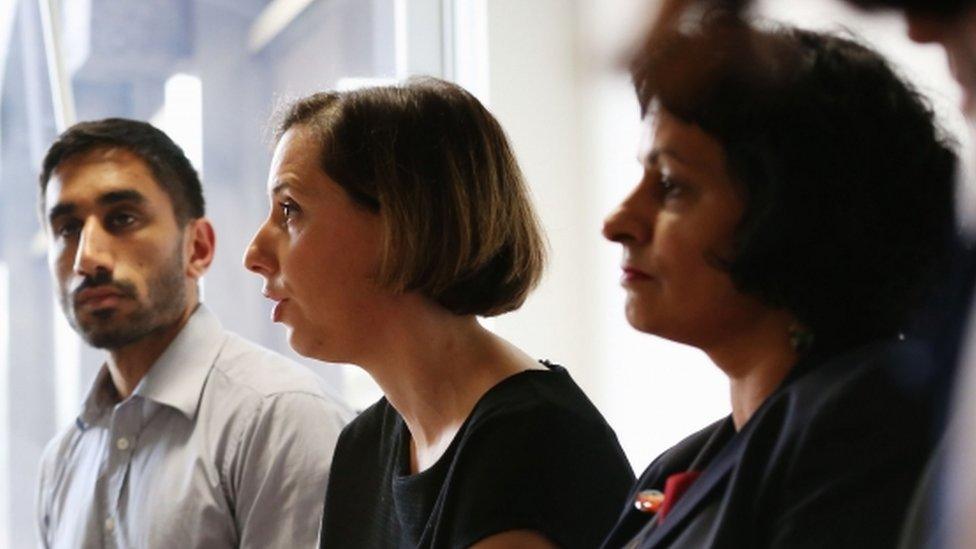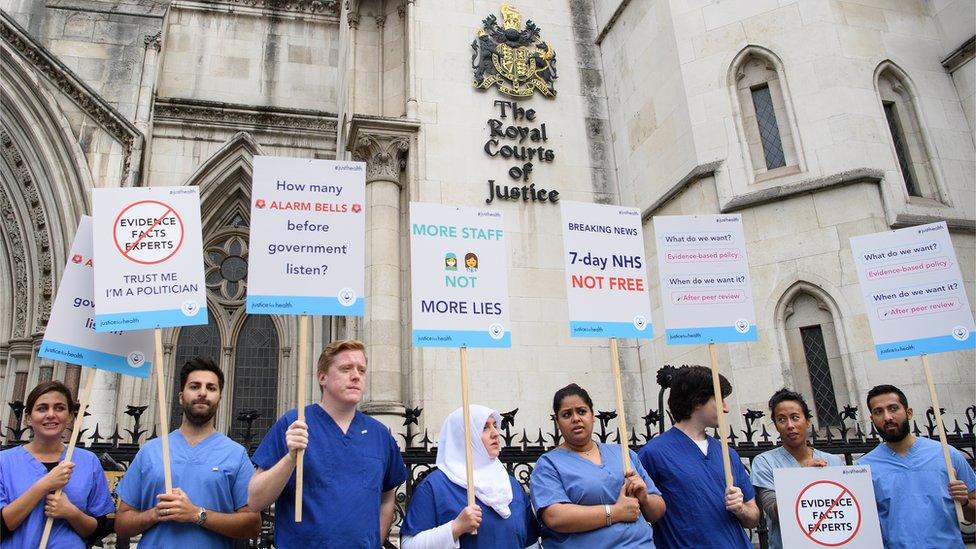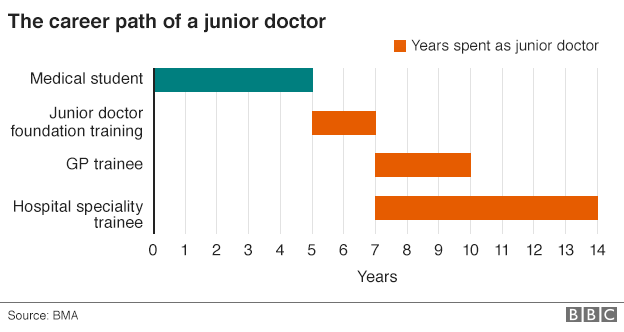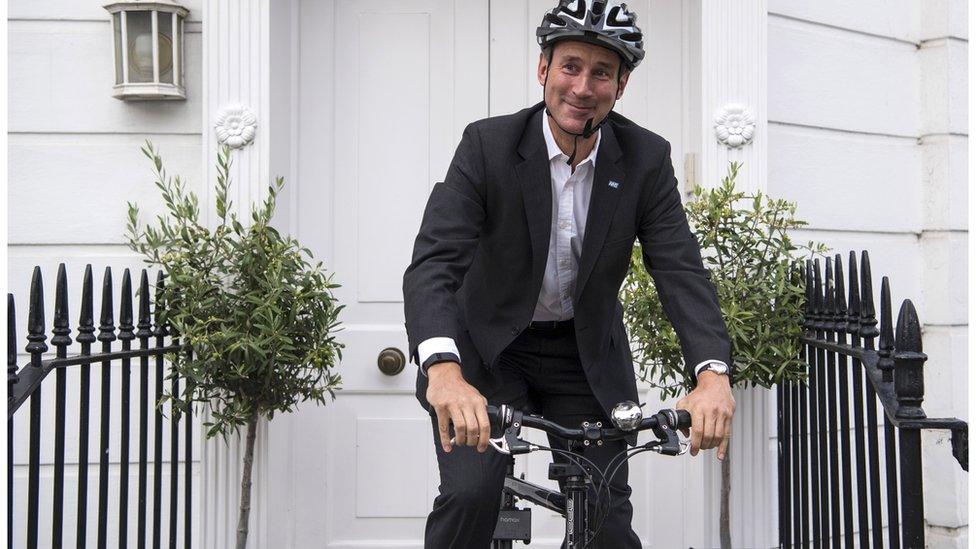Junior doctors legal road runs out - so what's the next step?
- Published

Junior doctors talk to the media after failing to convince a judge the new contract was unsafe
The junior doctors' attempt to get the High Court to stall the controversial employment contract has hit the buffers.
The judge ruled that the application for judicial review had not succeeded though the doctors' campaign group Justice for Health, external claimed they had secured a victory of sorts.
So where now for this prolonged dispute with the contract due to be introduced in English hospitals in less than a fortnight?
The legal action was seen as important because a High Court judge would scrutinise the detail of the arguments put forward by both sides in what has often seemed a tortuous and complicated debate.
At the heart of the issue was whether the Health Secretary Jeremy Hunt had the power to impose the new contract and whether he was trying to do that.
Justice for Health alleged Jeremy Hunt did not have the legal powers to underpin his announcement to Parliament in July that he would push on and introduce the new contract after BMA members had voted against it.
But the judge, Mr Justice Green, said Mr Hunt's decision "fell squarely within the scope of his lawful powers".
The junior doctors also argued the government's handling of the issue violated the principles of transparency and good administration.
The judge accepted that the impression given to doctors in the parliamentary statement was that Mr Hunt did intend to impose the new contract.
But afterwards he had, according to the ruling, clarified that he was not exercising compulsory powers.
The judge concluded there had been "no lack of clarity or transparency".

Junior doctors' new contract

Basic pay to rise between 10% and 11% on average
System of supplements paid which are determined by how many weekends - those working one in two will get 10% on top of basic salary
Nights to attract an enhanced rate of 37% above normal time
Replaces old system whereby weekend or night work can attract up to double time
First doctors to go on new terms in October with much of the rest of the workforce to follow by next summer
The British Medical Association says it is not fair on those that work the most weekends or part-timers

Justice for Health also alleged the decision to adopt the new contract was irrational and not grounded in evidence.
They contested the government claim that the new contract would help remedy the higher mortality rate amongst patients admitted to hospitals at weekends.
Here the judge concluded that while Mr Hunt acknowledged there was evidence both ways on the issue he was entitled to accept that "an increase in the availability and deployment of experienced doctors at the weekend will make some material contribution to the problem of increased mortality rates".
The Department of Health welcomed the ruling and noted that that the judge had concluded the Secretary of State had "acted entirely lawfully".
A spokesperson urged the BMA to remove all threat of further industrial action to allow both sides to move on from the dispute.

Justice for Health, by contrast, argued that an important part of its argument had been upheld.
Members say that the hearing established beyond doubt that the government did not have the power to impose a contract on a workforce which are employed by health trusts and not Whitehall.
These trusts are entitled, if they wish, to set their own terms of employment.
Campaigners argue that if it had been clear earlier in the saga that ministers could not force through a new contract, and Mr Hunt wasn't intending to do so anyway, they would have concentrated their lobbying on individual trusts and the dispute might have been resolved sooner.
'No local negotiations'
The Labour MP Rosena Allin-Khan, a former junior doctor, has called for an independent inquiry into why the dispute dragged on for so long if the government never intended to impose the contract.
But NHS Providers, representing the trusts, made clear its view that individual employers were not open to local negotiations.
The chief executive, Chris Hopson, said members believed that "a single national contract offers a consistent approach that is in the best interests of patients and the wider NHS workforce - this is also the view of the NHS arms length bodies".

The court said the health secretary's decision "fell squarely" within his powers
The British Medical Association for its part stressed it had not accepted the contract and that even though strike action had been abandoned there was still a dispute and outstanding concerns.
The head of the junior doctors' committee Dr Ellen McCourt told the Press Association: "We are looking at a variety of other options - we have not yet released those to our members - but what we need to do is find ways of challenging this at a more local level and using a variety of different methods".
The contract itself takes effect for a small number of new junior doctors in England from 5 October.
It will then be progressively rolled out as doctors take on new roles.
Opponents argue that trusts will struggle to introduce it alongside a new apparatus to fine hospitals which overwork doctors.
NHS leaders deny there are any practical problems with implementation.
Both sides acknowledge that the dispute is far from over.